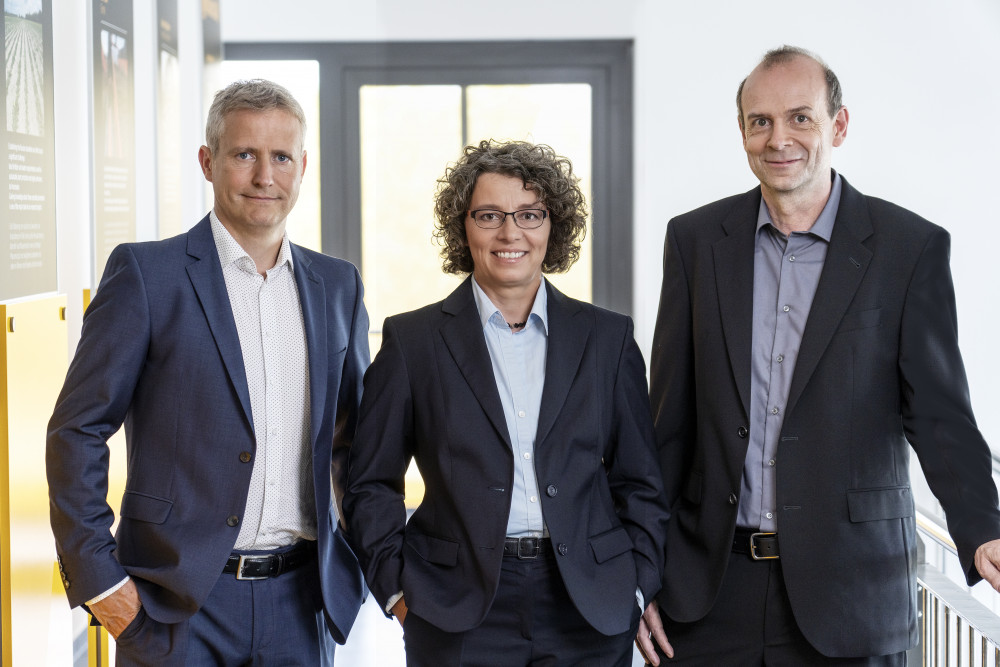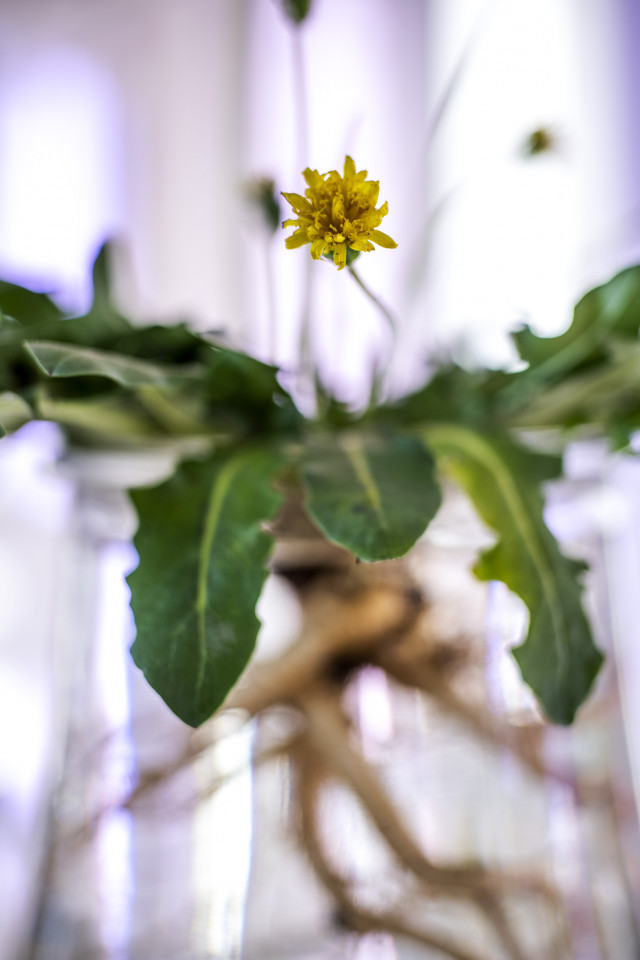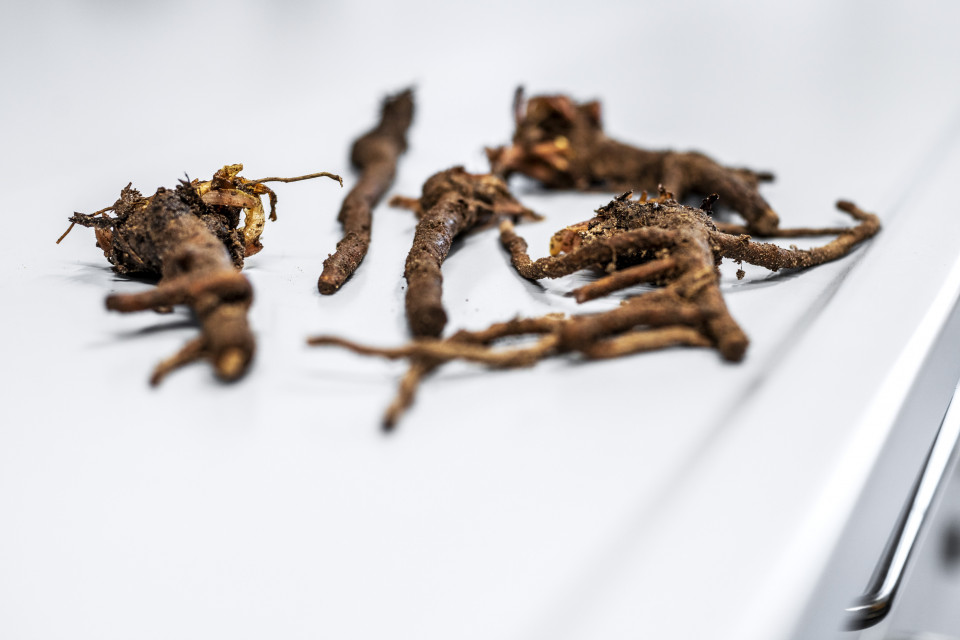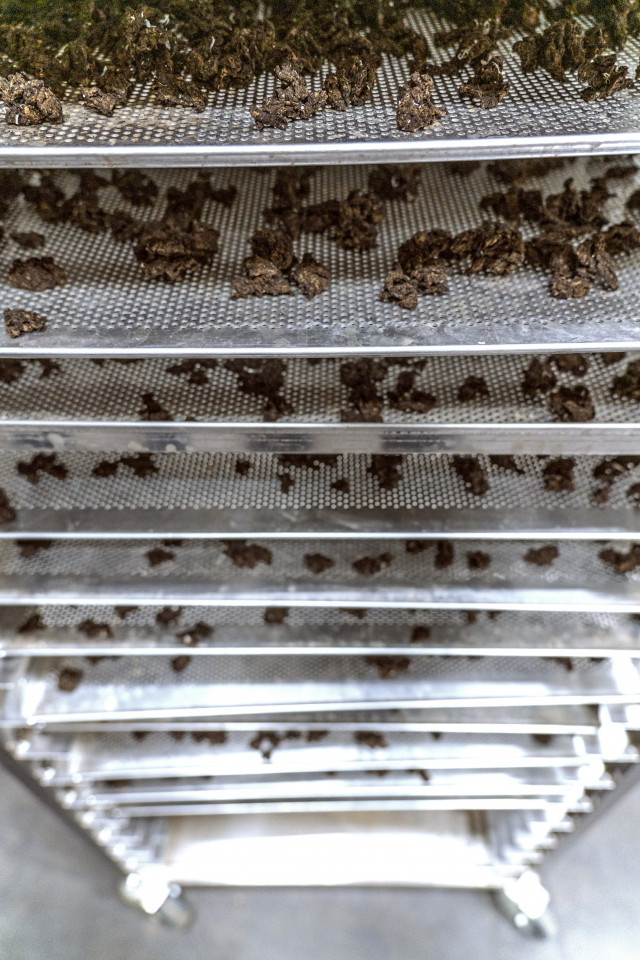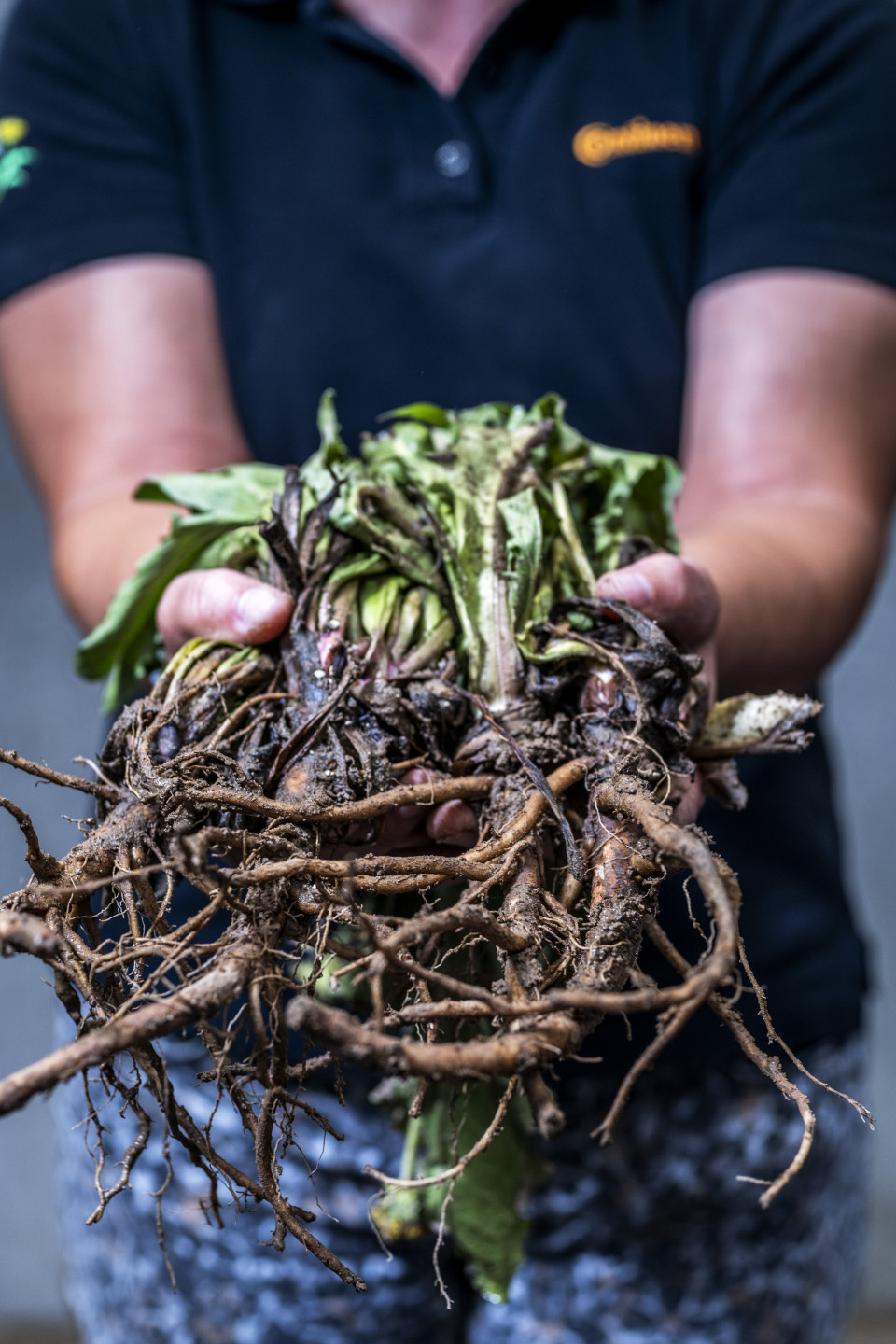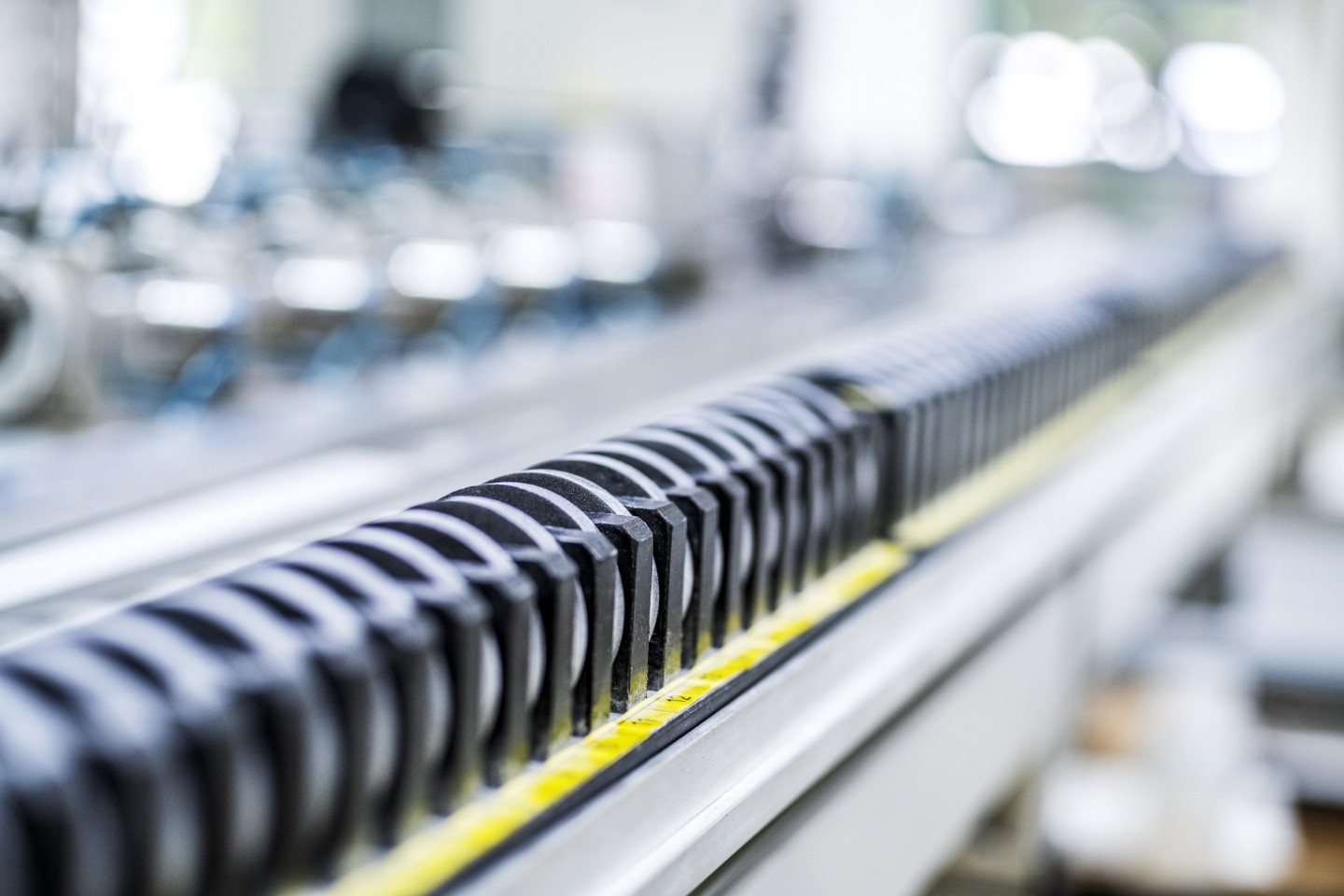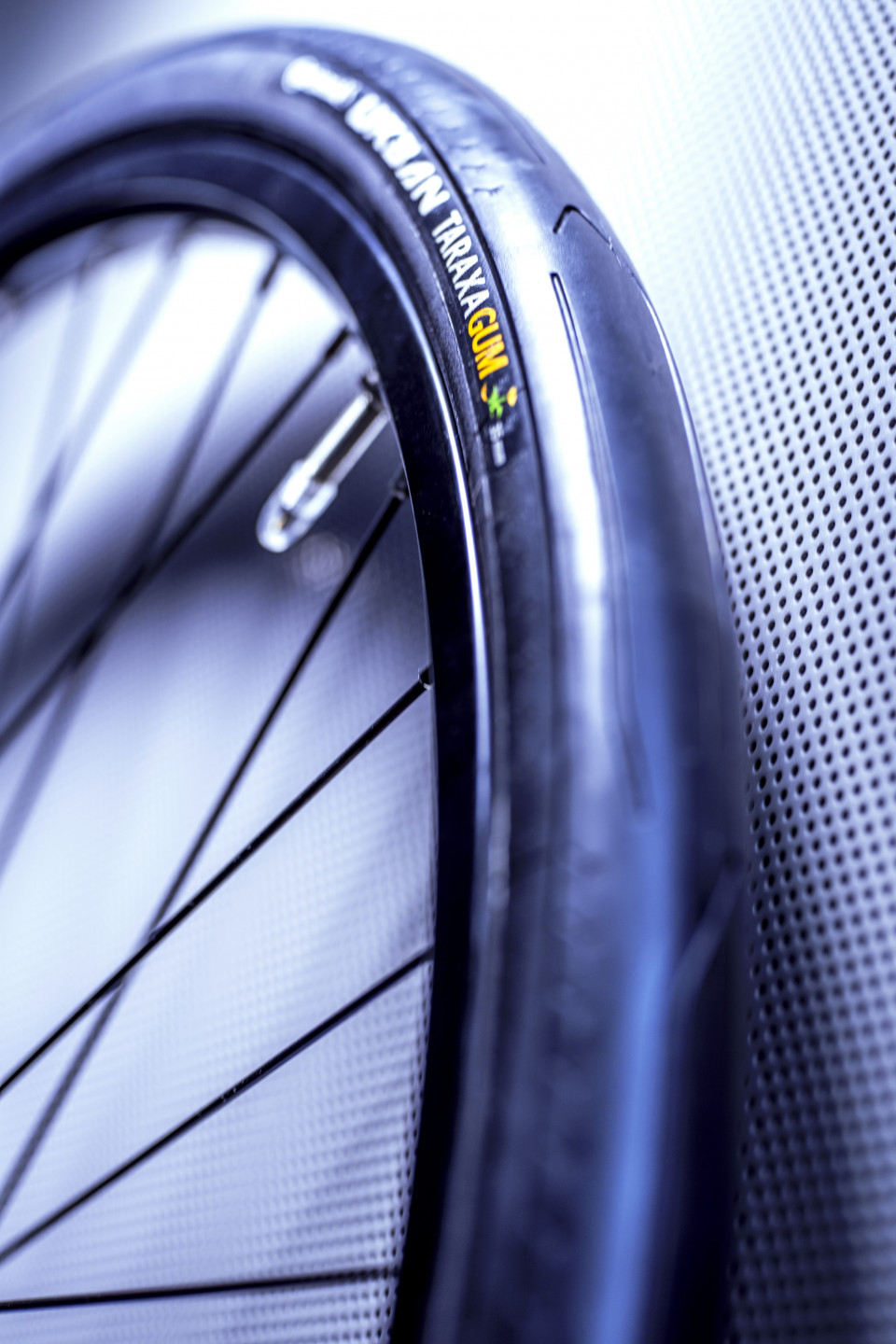Nominee 2021
Sustainable tires from dandelions
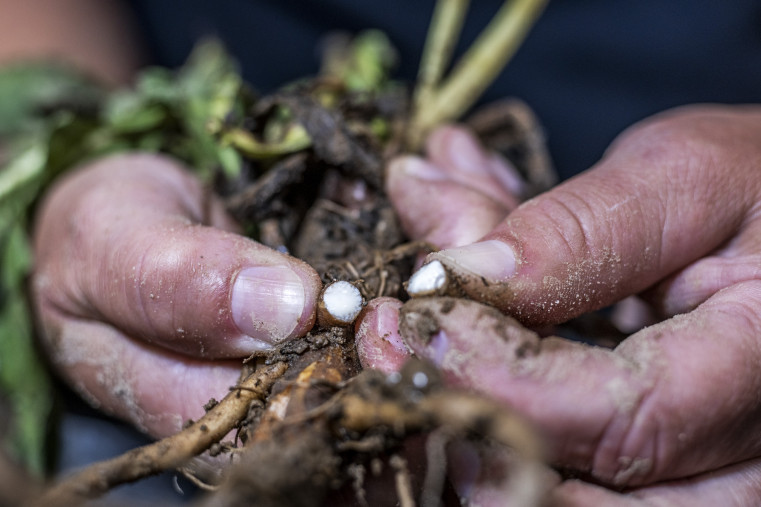
Dr. Carla Recker, Prof. Dr. Dirk Prüfer and Dr. Christian Schulze Gronover have found a fitting response. It is based on the Russian dandelion - an unassuming and hardy plant with unusual properties. It is an alternative source for the sought-after natural raw material which to date has been extracted exclusively from rubber trees.
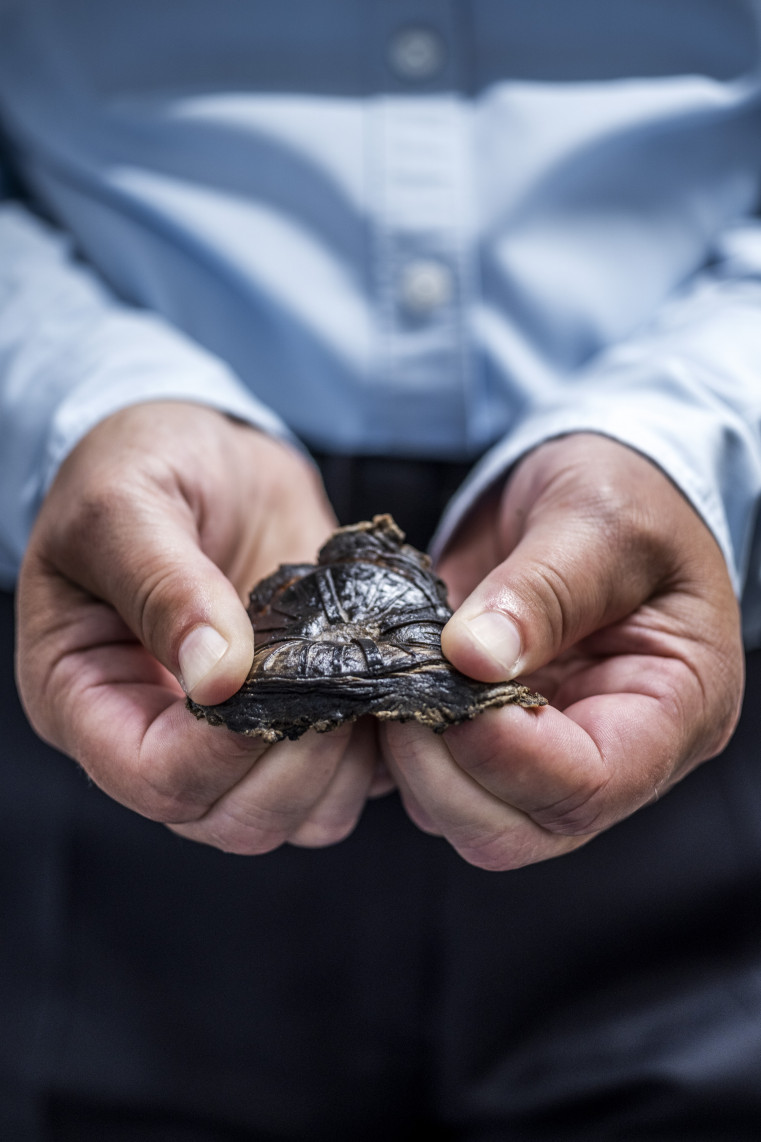
The team from Hanover and Münster proved that using caoutchouc from Russian dandelions it is possible to manufacture products in an environmentally friendly manner that are equal to products based on conventionally produced caoutchouc. Carla Recker is Head of Expert Field Material Chemistry & Taraxagumat Continental, which is part of the Material and Process Development and Industrialization in the Research and Development division.
More Details
Resume
Dr. rer. nat. Carla Recker
- 05.08.1965
- Born in Georgsmarienhütte, Germany
- 1984 – 1990
- Studies of Chemistry at the Technical University Carolo-Wilhelmina in Braunschweig, Germany, Degree: Diploma
- 1992 – 1996
- Studies of Environmental Sciences at the University of Rostock, Germany, Degree: Diploma
- 1995
- Doctorate (Dr. rer. nat.) at the Technical University Carolo-Wilhelmina in Braunschweig, Germany
- 1995 – 2003
- Various functions in the areas of Materials Research - Tire Research, Materials Research - Strategic Tire Technology and Advanced Materials - Strategic Technology at Continental
- 2003 – 2004
- Senior developer in Materials Research, Materials Development, R & D Tires, Continental
- 2004 – 2018
- Head of Expert Field Materials Chemistry - Material & Process Development & Industrialization, R & D Tires, Continental.
- Since 2018
- Head of Expert Materials Chemistry & Taraxagum - Material & Process Development & Industrialization, R & D Tires, Continental.
Responsibilities: Natural rubber from dandelion, know-how development for rubber raw materials and their interactions in rubber compounds in internal and external projects with universities, research institutions and suppliers.
Patents and Publications
- ~ 115 patents, 2 peer-review publications, 1 book chapter
Honours and Awards
- 2014
- GreenTec Award in the category Automobility
- 2015
- Josef-von-Fraunhofer-Award
- 2016
- Innovation Award and Green Award of Automechanika 2016
- 2018
- Transfer Award of the Westphalian Wilhelms University Münster
- 2019
- Sustainability Award from Accell for the Urban Taraxagum
- 2020
- Urban Taraxagum: IF Taipei Cycle d&I-award 2020, IF Award 2020, RedDot 2020.
Urban Taraxagum: German Sustainability Award Design, category 'Pioneer'. - 2021
- The Week of the Environment / Bellevue Palace
Prof. Dr. rer. nat. Dirk Prüfer
- 30.05.1963
- Born in Nettesheim, Germany
- 1982 – 1989
- Diploma in Biology at the University of Cologne
- 1992
- Doctorate (Dr. rer. nat.) at the University of Cologne
- 1992 – 1998
- Postdoc at the MPI for Plant Breeding Research, Cologne, Germany and Institut de Biologie Moléculaire des Plantes du CNRS, Strasbourg, France
- Since 1999
- Head of department „Functional and Applied Genomics“ at the Fraunhofer Institute for Molecular Biology and Applied Ecology IME in Schmallenberg und Aachen
- Since 2004
- Professor for Molecular Biotechnology of Plants at the Institute of Plant Biology and Biotechnology, Westphalian Wilhelms University Münster. Head of Fraunhofer IME branch office „Plant Biopolymers“ in Münster
- 2005
- Habilitation at the Justus-Liebig-Universität Gießen
- 2008 – 2017
- Vice Dean for Structure (2008-2011), Dean (2011-2014) und Vice Dean for Finance and Personnel (2014-2017) at the Faculty of Biology, Westphalian Wilhelms University Münster
- Since 2020
- Member of the Senate of the Westphalian Wilhelms University Münster
Patents and Publications
- 9 patents, ~100 peer-review publications, over 4000 citations, 9 book chapters
Honours and Awards
- 1992
- Otto Hahn Medal for outstanding scientific achievements, Max Planck Society
- 2000
- “The transparent gene lab”. The Stifterverband
- 2009
- The 50 Best Inventions of 2009: Dandelion Rubber. Time Magazine 2009
- 2010
- 365 Landmarks in the Land of Ideas: Give rubber!
- 2010
- Hanson-Medal of the Institution of Chemical Engineers (IChemE), UK
- 2012
- The Week of the Environment / Bellevue Palace
- 2013
- Highly commended for the Product of the Year, Chemical Engineers (IChemE), UK
- 2013/14
- 3x winner of the FhG "Best New Customer" competition
- 2014
- GreenTec Award in the category Automobility
- 2015
- Josef-von-Fraunhofer-Award
- 2018
- Applied Plant Research highlight project Plant2030
- 2018
- Transfer Award of the Westphalian Wilhelms University Münster
- 2020
- Best Fraunhofer Customer Acquisition
- 2020
- Hugo-Junkers Award
- 2021
- The Week of the Environment / Bellevue Palace
Dr. rer. nat. Christian Schulze Gronover
- 15.09.1975
- Born in Greven Westf., Deutschland
- 1995 – 1999
- Diploma in Biology at the Westphalian Wilhelms University Münster
- 2001
- Visiting Scientist at the Scottish Crop Research Institute, Dundee, Scotland
- 2001 – 2003
- Business studies for Natural Scientists at the Westphalian Wilhelms University Münster
- 2003
- Graduate School for Experimental Plant Sciences, Uetrecht, Netherlands
- 2004
- Doctorate (Dr. rer. nat.) at the Westphalian Wilhelms University Münster
- 2004 – 2005
- Postdoc at the department for Plant Biochemistry at the Westphalian Wilhelms University Münster
- 2005 – 2006
- Postdoc at the department for Plant Biotechnology at the Westphalian Wilhelms University Münster
- 2007 – 2010
- Scientist at the Fraunhofer Institute for Molecular Biology and Applied Ecology IME, Aachen/Münster
- Since 2010
- Group Leader at the Fraunhofer Institute for Molecular Biology and Applied Ecology IME, Aachen/Münster
Patents and Publications
- 6 patents, ~45 peer-review publications, over 1650 citations, 4 book chapters
Honours and Awards
- 2004
- Special Distinction of the Dissertation
- 2009
- The 50 Best Inventions of 2009: Dandelion Rubber. Time Magazine 2009
- 2010
- 365 Landmarks in the Land of Ideas: Give rubber!
- 2011
- Hanson-Medal of the Institution of Chemical Engineers (IChemE), UK
- 2012
- The Week of the Environment / Bellevue Palace
- 2013
- Highly commended for the Product of the Year, Chemical Engineers (IChemE), UK
- 2013
- Winner of the FhG "Best New Customer" competition
- 2015
- Josef-von-Fraunhofer-Award
- 2018
- Applied Plant Research highlight project Plant2030
- 2020
- Best Fraunhofer Customer Acquisition
- 2020
- Hugo-Junkers Award
- 2021
- The Week of the Environment / Bellevue Palace
Contact
Press
Silke Bernhardt
Leiterin Kommunikation & Public Affairs
Continental Reifen Deutschland GmbH
Phone: +49 (0) 511 / 93 82 615
E-Mail: silke.bernhardt@conti.de
www.continental-reifen.de
Dr. Birgit Orthen
PR-Referentin Pflanzliche Biopolymere
Fraunhofer-Institut für Molekularbiologie und Angewandte Oekologie IME
Forkenbeckstr. 6
52074 Aachen
Phone: +49 (0) 241 / 60 85 12 421
E-Mail: birgit.orthen@ime.fraunhofer.de
www. https://www.ime.fraunhofer.de/
Norbert Robers
Leiter Kommunikation und Öffentlichkeitsarbeit
Westfälische Wilhelms-Universität Münster
Schlossplatz 2
48149 Münster
Phone: +49 (0) 251 / 83 24 773
E-Mail: norbert.robers@uni-muenster.de
www.uni-muenster.de
Spokesperson
Dr. Carla Recker
Continental Reifen Deutschland GmbH
Jaedekamp 30
D-30419 Hannover
Email: carla.recker@conti.de
Phone: +49 (0) 511 / 97 63 584
Fax: +49 (0) 511 / 97 68 35 84
A description provided by the institutes and companies regarding their nominated projects
Sustainable tires from dandelions - Innovations from Biology, Technology and Agriculture
Protecting our tropical forests is a top priority in the fight against climate change. The central aim of the project “Sustainable tires from dandelions – Innovations from biology, technology and agriculture” is to stop importing natural rubber exclusively from the tropics in the future and to produce it as close as possible to the tire plants in order to prevent ongoing deforestation and to reduce CO2 emissions caused by long transport routes.
Dr. Carla Recker, Head of Expert Field Materials Chemistry & Taraxagum at Continental, Prof. Dr. Dirk Prüfer, Professor for Molecular Plant Biotechnology at the Institute of Plant Biology and Biotechnology at the University of Münster and Dr. Christian Schulze Gronover, Group Leader in Bioeconomy and Renewable Resources at the Fraunhofer Institute for Molecular Biology and Applied Ecology IME, Münster, have developed a suitable answer in a joint project. Together, this interdisciplinary project team rediscovered the Russian dandelion (Taraxacum koksaghyz) and has been researching its potential as an alternative source of raw materials along the entire value chain. This is consistently oriented to the aspects of sustainability and economic efficiency.
The basic prerequisites for economic and sustainable cultivation of raw materials are high-yielding and hardy plants. Here, the molecular biologists of the University of Münster and the Fraunhofer Institute IME performed internationally recognized pioneering work. Russian dandelion has its origin in Kazakhstan, grows on weak soils and is particularly suitable for the production of natural rubber due to the generated quality. However, the amount of natural rubber found in roots of wild plants is not sufficient for industrial production. The aim of the biologists was therefore to investigate the plant development and metabolism in order to understand more precisely the generation and content of natural rubber. These findings provided the basis for the development of so-called DNA markers, which are important for rapid breeding success. DNA markers are signatures that occur naturally in the plant's genome. They are easy to detect and each occurs in combination with the section in the genome that produces a particular trait in the plant. Through consistent, knowledge-based action and with modern analytics, the project team thus continuously researches the plant seedlings for desired properties, for example, a higher rubber content in the root. Using this approach, it was already possible in cooperation with the plant breeding company ESKUSA to develop high-yielding and resistant plants from wild Russian dandelions.
The next step was the production of sufficient amounts of seeds for agricultural cultivation to test the farming of the yield-optimized plants around a newly built research laboratory in Anklam, Mecklenburg-Western Pomerania, Germany. Together with experts from the agricultural sector, the project team has also been able to achieve continuous improvements, for example by designing new machines for economically and ecologically feasible cultivation and harvesting.
In order to extract the natural rubber from the harvested dandelion roots, the project team has also developed new technologies: The dandelion roots are mechanically crushed in water using a specially developed ball mill, the formed solid rubber particles are isolated and processed further.
The rubber extracted from dandelions is equivalent in its properties to those of conventional natural rubber obtained from rubber trees. This has been proven by Continental in extensive product and tire tests. Each passenger car tire, for example, contains about three kilograms of natural rubber, and each commercial vehicle tire up to 25 kilograms. The realistic yield target is to yearly obtain one ton of rubber per hectare of cultivated land. This would enable Continental to secure a growing proportion of its natural rubber requirements from new, sustainable sources.
Continental's Urban Taraxagum is the first series produced bicycle tire with a tread made of dandelion rubber, for which the Taraxagum brand name was introduced. Since its launch in 2019 as a series model in Continental's portfolio, above-average customer demand has been observed. The success of the sustainable tire is also reflected in numerous awards.
As early as 2014, the first experimental passenger car tire, the WinterContact TS 850 P, with a tread made of pure dandelion rubber passed extensive road tests with flying colors. In 2016, a first truck tire with dandelion technology was presented at the IAA. Continental intends to industrialize the technology for passenger cars and commercial vehicles in five to seven years. This represents a significant step toward even more sustainable tire production.
The project “Sustainable tires from dandelions – Innovations from biology, technology and agriculture” contributes to an environmentally and socially stable bioeconomy and meets seven of the United Nations' 17 Sustainable Development Goals.
Continental develops pioneering technologies and services for sustainable and connected mobility of people and their goods. Founded in 1871, the technology company offers safe, efficient, intelligent and affordable solutions for vehicles, machines, traffic and transportation. In 2020, Continental generated sales of €37.7 billion and currently employs around 235,000 people in 58 countries and markets. In 2021, the company celebrates its 150th anniversary.
Since the beginning of 2021, the Fraunhofer Institute for Molecular Biology and Applied Ecology IME comprises the divisions "Molecular Biotechnology", "Applied Ecology" and "Bioresources" and currently employs more than 400 people. Fraunhofer IME is a strong partner for contract research in the fields of agriculture, bioeconomy, chemistry, and environmental and consumer protection.
The Institute of Plant Biology and Biotechnology at the University of Münster consists of seven chairs with different thematic focuses on molecular physiology, genetics and biotechnology of plants. The institute is characterized by national and international cooperations and offers an outstanding opportunity for state-of-the-art plant research due to its modern equipment in the fields of molecular biological and chemical analytics as well as microscopy.

 Gebärdensprache
Gebärdensprache
 Leichte Sprache
Leichte Sprache


